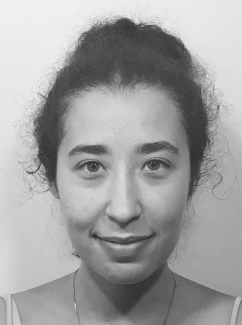Prediction and early identification of stroke is crucial to prevent emergency department (ED) revisits and initiate treatment, reducing morbidity and mortality.

Maxence Larose
M.Sc. candidate
Faculté des sciences et de génie
Université Laval
Prostate cancer is the second most frequent cancer and the fifth leading cause of cancer death among men. To improve patient outcomes, treatment must be personalized based on accurate prognosis. Nomograms already exist to identify patients at low risk for recurrence based on preoperative clinical information, but these tools do not use patients’ medical images.
The goal of this project is to use deep learning to develop a model combining FDG-PET/CT images and patient clinical data to improve the pre-treatment prognosis of high-grade prostate cancer. This model must be efficient, but also interpretable in order to allow an expert to understand the given probabilities.
Prostate cancer is the second most frequent cancer and the fifth leading cause of cancer death among men. To improve patient outcomes, treatment must be personalized based on accurate prognosis. Nomograms already exist to identify patients at low risk for recurrence based on preoperative clinical information, but these tools do not use patients’ medical images.
Mariame Gnéré Coulibaly's project will focus on the development of a tool for the prediction of bacterial host of phages by machine learning (ML). The first objective will be to develop a ML tool to identify bacteria-phage pairs from CRISPR spacer sequences (clustered regularly interspaced short palindromic repeats) found in bacterial genomes, which are fragments of phage genomes that have infected the bacteria. The second objective is to develop a ML tool to identify bacteria-phage pairs based on sequence and methylation information (i.e.
Mariame Gnéré Coulibaly
M.Sc. candidate
Faculté des sciences et de génie
Université Laval
Mariame Gnéré Coulibaly's project will focus on the development of a tool for the prediction of bacterial host of phages by machine learning (ML). The first objective will be to develop a ML tool to identify bacteria-phage pairs from CRISPR spacer sequences (clustered regularly interspaced short palindromic repeats) found in bacterial genomes, which are fragments of phage genomes that have infected the bacteria. The second objective is to develop a ML tool to identify bacteria-phage pairs based on sequence and methylation information (i.e. the addition of methyl groups to nucleotides). For the first two objectives, algorithms such as neural networks with attention mechanisms, and similarity predictors based on string kernels, will be developed and tested.
The third objective is to develop a multi-view algorithm combining the two previous objectives, with one view for CRISPR information and a second view for methylation patterns.
The tools developed will have a strong impact on the microbiology and virology research community, by being able to identify new bacteria-phage pairs from microbiota samples.
Fadwa Mehdaoui's project focuses on the analysis of interactions between bacteria and their viruses, called phages, in the microbiota using metagenomic data coupled with bioinformatics and machine learning methods.

Fadwa Mehdaoui
M.Sc. candidate
Faculté des sciences et de génie
Université Laval
Fadwa Mehdaoui's project focuses on the analysis of interactions between bacteria and their viruses, called phages, in the microbiota using metagenomic data coupled with bioinformatics and machine learning methods.
The metagenomic data come from the North Sentinel project 3.6 (axis Environment-health interactions in the North) that sampled the gut microbiota of young Inuit from Nunavik. Following the identification of bacteria and phages in the sequencing data, her work will consist of an exploratory statistical analysis of the interactions between bacteria and phages, followed by a machine learning analysis based on interpretable algorithms such as the set covering machine or random forests. It is also envisaged to develop a new machine learning model for phage host prediction based on these data.
This project could have important implications for the understanding of the interactions between bacteria and phages, which are very poorly known, but also for the knowledge of the gut microbiota of the Inuit in relation to their unique diet.
WaiMEETUP Quebec : In-person Networking Event
Know moreSupervised classification allows to build predictive models based on complex data to help human decision making processes. It has undergone an impressive development in recent years, particularly thanks to neural networks and the use of big data. However, these methods are not relevant to use on databases in which only a few instances are available to build the model, and even less when these instances are described by a large number of features.
Discover

Featured project
Delirium is a condition that, when left unmanaged, is associated with increased mortality and longer hospitalization of patients in intensive care; therefore, its detection should be an integral part of care. It is characterized by confusion, anxiety and reduced alertness. It is estimated that 75% of delirium cases are not detected on admission to hospital. Detecting such an acute condition requires frequent monitoring of participants, which is labor intensive and requires expertise.